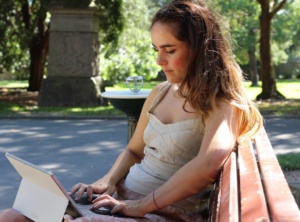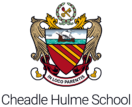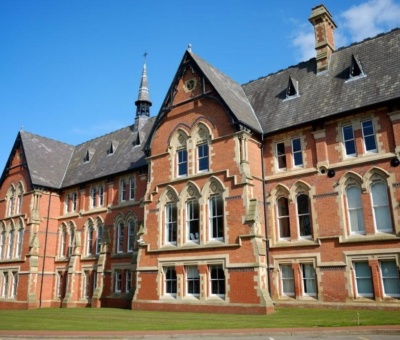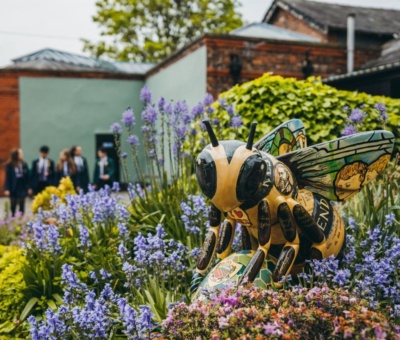International Women’s Day: Celebrating Success (Old Waconians)
Phoebe McGowan is a Old Waconian and a former member of Cheadle Hulme School’s Equality Society. Here, she explores the origins of International Women’s Day and how the messages translate in modern media.
The Origins
On March 8th, 1917 a small group of women in St. Petersburg were allowed to protest, calling for ‘Bread and Peace’, for the end of the war, for reasonable working hours – for basic human rights. The protests started off small, but soon spiralled into chaos as more and more factory workers, men and women alike, spilled out of their factories and into the street, soon to be joined by the armed forces.
The army had never deserted the tsar before, and soon Nicholas II would abdicate, leaving Russia to its first democratic government. Women and men alike were granted the right to vote.
This day is well known in history, but few remember that the women who started this were celebrating International Women’s Day – now a national holiday in Russia and the ex-USSR.
 People often see this day as a symbol of the 21st century – a move towards political correctness and appeasement – but few realise the true age and historical significance that the day has. Established in 1909, the day has been significant throughout history in bringing rights to working women for over a century. Yet the struggles that the day has had is often reflective of the struggles women had; European countries were originally hesitant to embrace the day due to a fear of women actually gaining suffrage, as socialist parties were afraid they would vote conservative.
People often see this day as a symbol of the 21st century – a move towards political correctness and appeasement – but few realise the true age and historical significance that the day has. Established in 1909, the day has been significant throughout history in bringing rights to working women for over a century. Yet the struggles that the day has had is often reflective of the struggles women had; European countries were originally hesitant to embrace the day due to a fear of women actually gaining suffrage, as socialist parties were afraid they would vote conservative.
The issue of voting being a basic human right never came into the matter, simply how it would affect the men in power at the time. The adoption of International Women’s Day in Europe, therefore, meant that a decision had been made – women’s rights were finally being treated as human rights.
Nowadays, some knowledge of women’s rights is common, yet the image of women in the media is still increasingly negative.
The recent media outrage around Emma Watson’s Vanity Fair photo shoot, in which her breasts were only partly covered, was upsetting for me to hear because it was not men, but women who were shaming her and denouncing her feminist teachings simply because of a photo shoot.
Yes, debates such as these do open a space in the media discussion for feminists to share their view, such as Watson rightly did, proclaiming that ‘Feminism is not a stick with which to beat other women’, but this often pushes feminists onto the defensive. The effect of this is that feminism and the celebration of women’s rights is portrayed as negative, or as something that people are afraid to get wrong.
The significance of International Women’s Day not only allows for the discussion of injustices to women around the world, but also allows a more positive space for women in the media.
Celebrating Success

Leisha Morrison, Class of 2001 is a Data Analytics Recruitment Consultant based in Sydney, Australia. Outside of her day-job with AMP, she helps to promote STEM subjects to girls and encourage more women to take up Data Analytics roles through the networking group she set-up, Women in Data.
Tell us a more about Women in Data – what is the concept and what do you hope to achieve through the initiative?
The concept of Women in Data is based on the simple fact that there is a distinct lack of women who are working in this industry, particularly in leadership roles. The stats are currently at around 24% across Australia; I believe it’s a little better in the UK but a little worse in the US. Asia Pacific seems to have a much more visible gender balance and from conversations I’ve had with professionals there, this seems to be down to their education system having many more girls studying STEM subjects than any of the other continents.
We want to change that statistic in Australia and get more girls interested in studying STEM subjects. The way to do this is by explaining and showing girls and boys what kind of career STEM subjects could give them.
Culture is a much bigger issue than we give it credit for. In order to encourage more women to take up data-centric roles, we need to create an environment where they feel encouraged and invited to be an integral part of the culture. That means changing the notion that data is a male dominated environment; this is important for men, as well as women, because a diverse team is a dynamic team. So Women in Data was born and we invite men and women to attend and knowledge-share, up-skill themselves and network with other brilliant, passionate minds.
The only way we foster change is by making noise in the first place. This is something I feel is our responsibility – to make a difference for the next generation.
Why are you personally so passionate about promoting women and girls in STEM subjects?
Firstly, I’m a feminist who believes in equity, more than equality; I don’t just believe that girls should have the opportunity to do everything boys do, I believe that we all, as individuals, should have the same opportunities given to us; because we’re all different, we should, as individuals, then be given the correct platform to help us succeed.
There are girls who love science, boys who love art; societal stereotypes shouldn’t stand in the way of children’s passions for certain subjects. I was raised by a successful single mother who worked two jobs to send me to CHS and gave me all the same advantages that a two parented family would give their child. My mother never let society tell her I couldn’t have any of those things just because we didn’t fit the stereotypical norm and I believe that’s important.
I was also always a child that struggled with STEM subjects at school and was much more passionate about English and the creative arts – but here I am now forging a career in data despite this.
“I want girls to know that they don’t have to sit in any particular box in order to succeed.”
How would you describe yourself at school and how do you think CHS helped prepare you for the work you do now?
I was very meek and mild at school. I was not the most popular, nor the cleverest, and I often felt like I was very ‘average’ compared to my peers in every way.
CHS nurtured my individual talent for Music, Art and English and I had some brilliant teachers who recognised my shyness and brought out my personality so that I was ready for further education.
What is your ‘Spark’? What motivates and drives you to carry out your passion projects?
My passion for Women in Data is fuelled by the inspiring women that I meet through this project every day who motivate me to collaborate with them more.
That realisation, that my voice counts, is my biggest spark.
Often we hear people say that ‘one vote won’t make a difference’ and then Brexit and Trump happened and we all started to realise that every vote definitely counts!
Horses are also a big spark for me; I’ve never been happier than when I was riding 40 horses a day and living in the Australian outback – that gave me the motivation and drive to make my next career move.
Surrounding yourself with like-minded and positive people fuels your spark. When you’re at school, often it can feel like you’re the only person like you out there, which is isolating, but travelling opens up your eyes to so many different types of people who are successful in their passion projects all over the world.
Once I realised that I wasn’t alone and I found what I loved, I became my own advocate and everything else started to fall into place.


